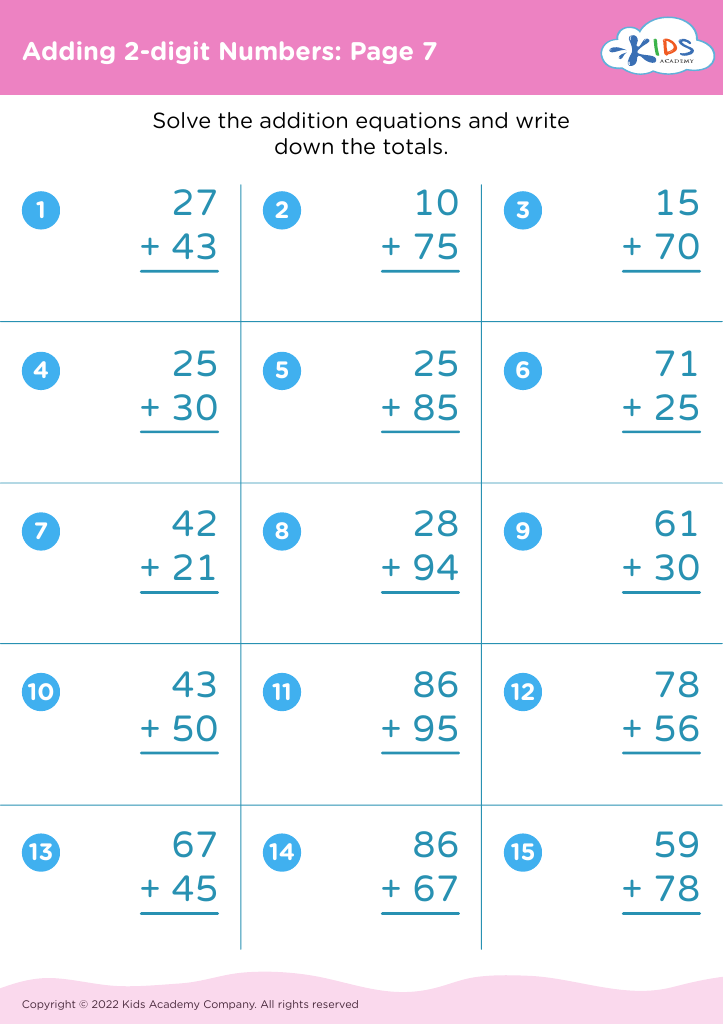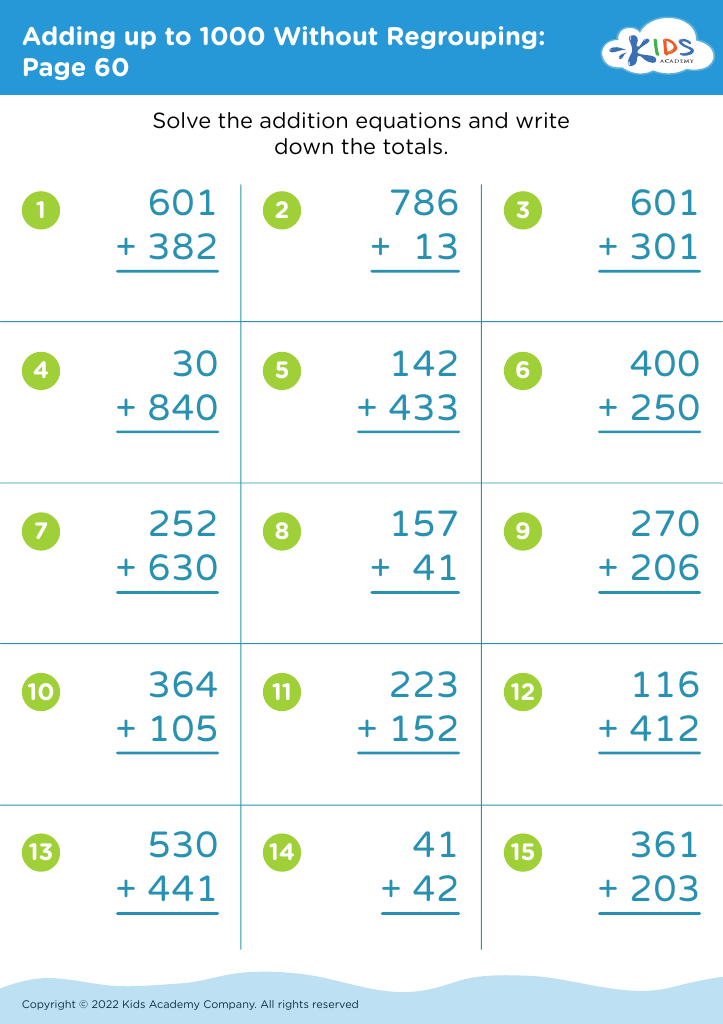Learn addition Math Worksheets for Ages 4-7
3 filtered results
-
From - To
Enhance your child’s math skills with our engaging addition worksheets designed specifically for ages 4-7. Our comprehensive collection of printable worksheets helps young learners grasp basic addition concepts through fun and interactive activities. Each worksheet encourages problem-solving and critical thinking, ensuring that addition becomes a natural and enjoyable part of their learning journey. Kids will benefit from colorful illustrations and creative exercises that make addition practice exciting. Perfect for homeschooling or extra practice at home, these resources promote number recognition and foundational math skills. Prepare your little ones for academic success with our thoughtfully crafted worksheets for early learners!
Learning addition at a young age is crucial for children aged 4 to 7, as it lays the foundation for their mathematical understanding. During these formative years, children develop essential cognitive skills, and mastering addition fosters critical thinking and problem-solving abilities.
From a practical standpoint, early exposure to addition helps children grasp everyday concepts such as counting objects, sharing, and understanding quantities, which boosts their confidence in handling transactions or organizing play activities. This knowledge translates to academic success, as it prepares them for future math challenges and increases their likelihood of enjoying and excelling in math later in their educational journey.
Additionally, learning addition supports language development. Children learn to articulate numbers, engage in discussions about their thought processes, and cultivate communication skills. The social aspect of learning addition, whether in group settings or with parent interaction, encourages collaboration and cooperative learning.
For parents and teachers, emphasizing addition sets the stage for lifelong learning habits. Investing time in teaching this fundamental skill fosters a positive relationship with mathematics, encouraging curiosity and a love for learning that extends beyond numbers. Thus, supporting children's addition skills is not only crucial for immediate academic success but also for nurturing a positive attitude toward math throughout their lives.








.jpg)















